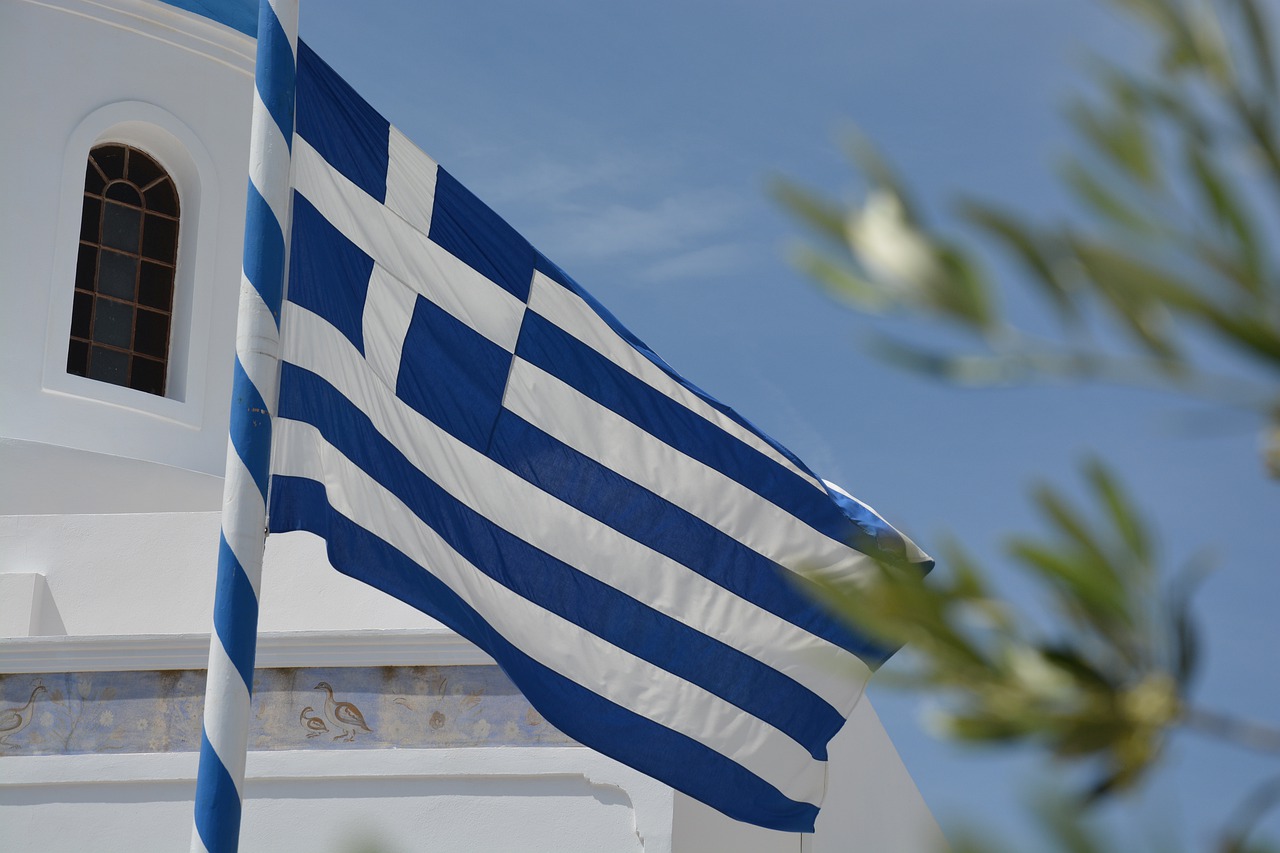
For a good four and a half years, Alexis Tsipras from the left SYRIZA party has been Greek prime minister. In the midst of the country’s debt crisis, he took office and led the country through difficult years.
At least economically, it is now uphill, for Tsipras the way seems to be over for the time being: In the election on Sunday Kyriakos Mitsotakis of the conservative Nea Dimokratia (ND) is the favorite – that of the party that had led the country into chaos.
In the midst of the sovereign debt crisis in 2015, Tsipras had won the promise that he would end the austerity measures imposed by the creditors of the heavily indebted country. The then 40-year-old played poker: Several EU summits were on the verge of breaking off.
With a referendum, he sought backing for his negotiating position, as parts of his party did not agree to the negotiated deal, he called new elections in September – and was confirmed. And just got the right-wing populist party ANEL again as a coalition partner in the boat.
Pressure of creditors, little room for maneuver
But in the following years, Tsipras had to bow to the pressure of the creditors and the troika hated in Greece, consisting of the European Central Bank, the International Monetary Fund and the European Commission, and to enforce a rigorous austerity package and reforms.
And, in fact, an upswing succeeded: the economy grew stronger than expected, the country was able to leave the euro rescue package in August 2018. Unemployment also recovered and fell from 26 to 18 percent.
The Greek parliament in Athens
debate
How should it continue?
The prime minister did not have much room for maneuver: In tax and social policy, he tried to redirect to the poorer – and at the same time turned the middle class upside down with higher taxes. The elderly population moans under several reduced pensions, and in general the small upswing in large parts of the population did not arrive.
The shine faded
But not only because of the unfulfilled full-bodied election promises Tsipras lost popularity. Finally, the first allegations of nepotism against his party came up, even though he had always declared war on corruption.
He had himself photographed in 2018 aboard a luxury yacht of a rich shipowner, which also affected the Saubermann image.
In the devastating forest fires with around 100 deaths in the Attica region failed in the previous year, the crisis management of the government. Tsipras took the responsibility. For the settlement of the name dispute with Macedonia Tsipras and the North Macedonian Prime Minister Zoran Zaev may even win the Nobel Peace Prize, but in his own country many took offense at giving in.
The dissatisfaction is one of the main reasons why SYRIZA was punished in the European elections in May. In response to the defeat, Tsipras called for new elections – in which he could fail now.
Comeback of the Conservatives
Because according to all polls, the conservative ND seems to make a political comeback. The 51-year-old Mitsotakis has been leading the party since 2016 and promises to further boost the economy: he wants to reduce bureaucracy and establish a more business-friendly climate. Privatizations, against which Tsipras had resisted, are now to go on the stage.
The corporate tax is to be reduced within four years from 28 to 20 percent, also the levies for low-income earners are to fall.
Forgetting that it was ND and Social Democratic PASOK politicians who alternately ruled the country for decades and led it into crisis: even before entering the eurozone, budgeted and deficit data had been delivered to the EU. Also in the following years, the true extent of the debt was obscured. In 2010, the bomb exploded and the Greek tragedy took its course.
Sprout of a political clan
Mitsotakis‘ popularity is not diminished either by his being Minister for Administrative Reform under Prime Minister Antonis Samaras (ND) from 2013 to 2015, nor by his having emerged, like almost all ND and PASOK grandees, from one of the political clans in his political life Offices mutually promoted and replaced.
Mitsotakis‘ father Constantine was Greek Prime Minister from 1990 to 1993, his sister Dora Bakogianni mayor of Athens and Foreign Minister, his nephew has just won the election to the Athens Mayor. Many voters criticize and fear these „clans“ that make it impossible to turn the country around and make it honest.
PASOK did not survive scandals
While the conservatives are regaining power, the other traditional party has not survived the country’s economic crisis and scandals. In the 2012 election, the decline began in 2018, she went along with some smaller center-left groups in the newly founded movement of change (KINAL). The party is predicted but just eight percent of the vote.
In general, the crisis has radically changed the party landscape. The EU-hostile Communists (KKE) are only five to six percent, the right-wing populist ANEL as little as the center-left alliance Potami.
Varoufakis with their own list
The neo-Nazi party Chrysi Avgi (Dt .: „Golden Dawn“), whose virtually entire leading cadres in court or is already convicted, could just create the three-pronged hurdle in Parliament. She lost many supporters of the new, ultra-national party Elliniki Lysi (German: „Greek solution“), whose eccentric boss Kyriakos Velopoulos was fed mainly by anger at the settlement with North Macedonia.
Also in parliament, it could create the list of another dazzling figure: the left alliance MeRA25 of the former Minister of Finance of the SYRIZA government Gianis Varoufakis. Once Tsipras‘ fellow campaigner and blustery negotiator at EU summits, he turned his back on his companion in the summer of 2015 – and is now considered a bitter opponent.
Some question marks remain
The polling stations opened on Sunday at 07.00 (local time, 06.00 CEST). Around 9.9 million citizens are called to vote. The Conservatives predict polls predict a landslide victory of 35 to 40 percent of the vote. SYRIZA is around ten percentage points behind. In the Greek electoral system, the strongest party receives a bonus of 50 seats. The ND can thus speculate with an absolute majority of the 300 MPs.
However, there could be surprises. Greek polls are not always considered reliable. It will also be on the turnout: Political disaffection and an election in the middle of the holiday season could greatly reduce participation. It will also depend on which small parties make the leap into parliament. If the ND does not create the „absolute“, it will probably be difficult to find a coalition partner. A second election within a short time is therefore not completely excluded.



